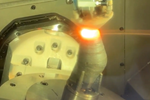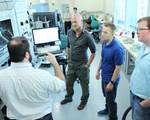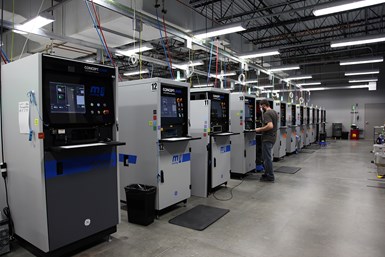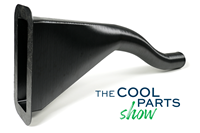Protolabs’ Software Provides Instant Manufacturability Analysis for 3D Printing
The automated design feedback helps accelerate product development and avoid unnecessary production costs by making design adjustments early.
Share
Read Next
Protolabs’ instant design for additive manufacturability (DFAM) analysis on 3D printed parts provides automated feedback that enables product developers and engineers to optimize additive designs before parts are printed. The software helps accelerate product development and avoid unnecessary production costs by making design adjustments early.
“Protolabs was one of the first digital manufacturing companies to launch automated manufacturability analysis on molded and machined parts — a tool that quickly became essential for our customers during their iterative design process,” says Oleg Ryaboy, Protolabs chief technology officer. “We’re excited to expand our design for manufacturability suite into 3D printing, so customers can take advantage of the same speed and cost-reduction benefits.”
The DfAM analysis is available globally on parts uploaded through the company’s online quoting platform for any of its plastic and metal 3D printing technologies. When users receive their quotes, the analysis immediately highlights potential manufacturability advisories concerning thin walls, small gaps and parts that exceed maximum size restrictions. The launch extends the company’s automated DfAM, also available through its digital network of manufacturing partners at Hubs.
“Our DfAM capabilities significantly improve the 3D printing quoting experience, enabling customers to easily engage with our broad technical offering,” says Rob Bodor, Protolabs’ president and CEO.
The company has also recently broadened its additive material and finishing options. Now, product developers and engineers can choose 3D printed silicone in multiple levels of shore-A hardness. The material is 100% pure silicone, which is biocompatible and functional at a range of temperatures.
Earlier this year, vapor smoothing was launched for select materials, providing enhanced finishes that eliminate rough surfaces and leave a glossy, aesthetic appearance on 3D printed parts. The addition of design and production capabilities within 3D printing signals a larger push by Protolabs to bring more manufacturing possibilities to its customers.
- Read about how Protolabs is helping customers create designs that are printable as well as functional.
- Learn more about Protolabs’ vapor smoothing process which produces 3D printed parts with enhanced surface finish, giving users all the advantages of additive manufacturing for parts while still achieving a surface finish that is comparable to injection molding.
Related Content
-
Understanding HP's Metal Jet: Beyond Part Geometry, Now It's About Modularity, Automation and Scale
Since introducing its metal binder jetting platform at IMTS in 2018, HP has made significant strides to commercialize the technology as a serial production solution. We got an early preview of the just-announced Metal Jet S100.
-
New Zeda Additive Manufacturing Factory in Ohio Will Serve Medical, Military and Aerospace Production
Site providing laser powder bed fusion as well as machining and other postprocessing will open in late 2023, and will employ over 100. Chief technology officer Greg Morris sees economic and personnel advantages of serving different markets from a single AM facility.
-
Casting With Complexity: How Casting Plus 3D Printing Combine the Strengths of Both
Aristo Cast is advancing a mode of part production in which casting makes the part, but 3D printing enables the geometry.
















